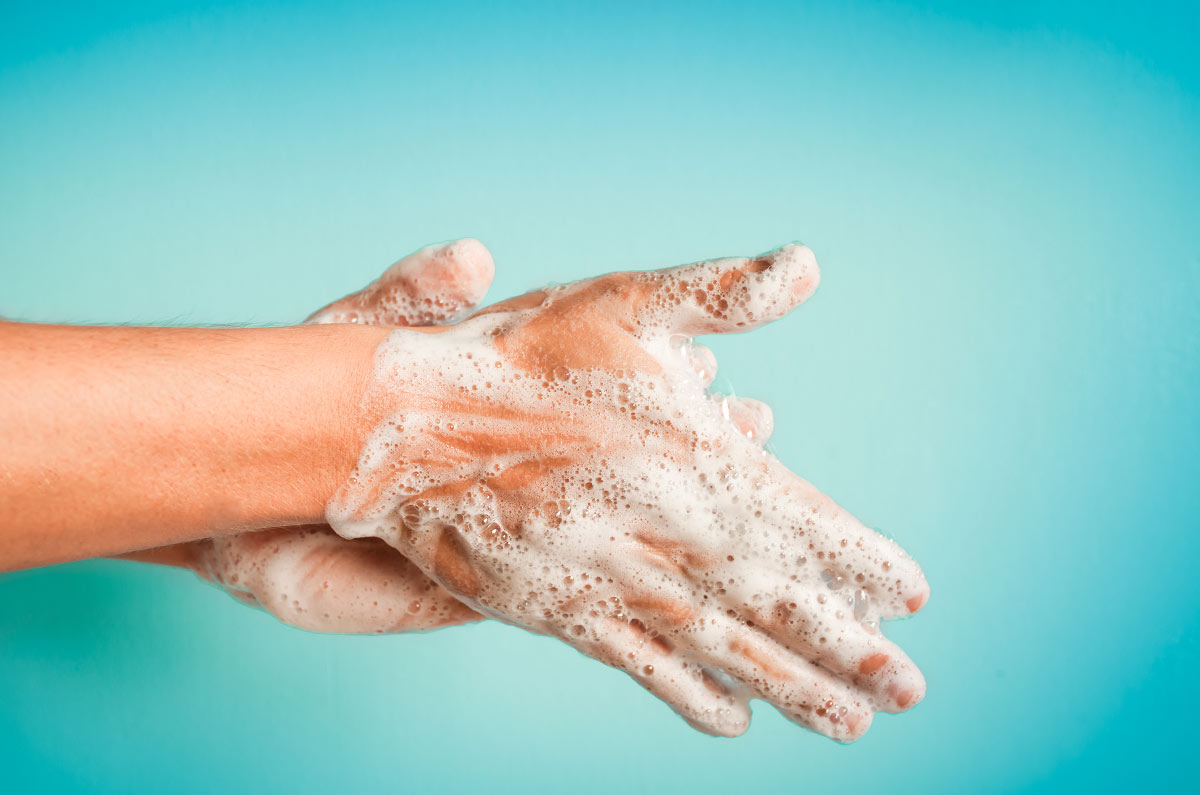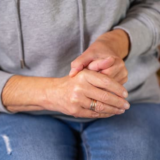COVID-19 – hygiene 101
April 22, 2020 by Lisa Bywaters

Updated July 2022
We’re halfway through 2022, and sadly, as much as we’d like it to be done and dusted, we’re still in the midst of the COVID pandemic. In fact, more people are getting sick than ever before because of these pesky variants. To make matters worse, we’re also in the middle of cold and flu season 😯.
We were so good at searching for and destroying germs at the beginning of the pandemic – we washed, scrubbed and sanitised like the legends we are. But with COVID barely being reported in the media, it’s easy to think we don’t need these measures anymore. And we may be getting a bit lax in our habits. Unfortunately, if your condition or meds have weakened your immune system, this increases your risk of getting infections.
So let’s revisit some key points about hygiene to help prevent the spread of COVID-19 and other nasties.
Washing your hands
We need to wash our hands with soap and water more frequently than we did before the pandemic. And we need to do it for at least 20 seconds. So no more splashing a bit of water around and considering the job done. Time yourself washing your hands a few times – 20 seconds is surprisingly long! A rough guide is the length of time it takes to sing Happy Birthday twice 😊🎁.
You also need to be thorough – so use plenty of soap, lather up and wash your hands front and back, between your fingers, and under the nails. And don’t forget to dry them properly.
So when should you wash your hands? Well, there are the obvious times we should have been washing our hands before the virus appeared – so continue washing your hands:
- after you go to the toilet
- after blowing your nose, sneezing or coughing
- after touching or being in contact with someone who’s sick
- before and after you eat
- when preparing food
- when handling rubbish
- when your hands are visibly dirty
- when dealing with your pets or other animals (patting, feeding, dealing with their poo or litter trays).
Other times you should be washing your hands because of COVID-19:
- after going out in public – for example, the shops, public transport, petrol station, chemist, workplace, childcare centre, healthcare setting etc. Basically, any place where you’re touching things that other people may have touched or breathed on.
- before and after you unpack your groceries. Read our blog about grocery shopping for more info about how you can look after yourself and your family and still get the groceries you need.
Hand sanitisers
Remember when hand sanitiser was hard to find in 2020 😮😂? Now it’s everywhere and it’s a handy tool for combatting germs.
Hand sanitisers are really helpful when you don’t have access to soap and water, for example when you’re at the shops or using public transport. Just be sure your sanitiser contains at least 70% alcohol to be effective against COVID-19.
Compound Interest has a great article explaining how hand sanitisers protect against infections.
Avoid touching your face
We touch our faces a lot…more often than we actually realise. The problem is our faces include eyes, noses and mouths – perfect places for viruses and other germs to enter our bodies. So it’s important to avoid touching our faces, especially when we’re out in public or around other people.
Sneezing, coughing and blowing your nose
If you need to sneeze or cough (for whatever reason – allergy, virus, sun in your eyes), do it into your elbow or a tissue, not your hand. If you use a tissue, throw it in the bin. And regardless of whether you use your elbow or a tissue, wash your hands or use a hand sanitiser immediately.
If you’re blowing your nose, it’s best to use a tissue instead of a hanky. That way, you can throw it away, rather than carrying a dirty hanky in your pocket or bag, contaminating your hands every time you touch it.
Seriously – I’m exhausted just reading this!
If you’re feeling a bit overwhelmed by all of this, you’re not alone; I still can’t stop touching my face, and we’re years into this pandemic!
But we get it – when you have a condition that often has you waking up exhausted or fatigue that weighs you down throughout your day, you want to take shortcuts when you can, often with the ‘simple’ things. But because we’re living through a pandemic, we need to be vigilant regarding our hygiene (see above points) and do the best we can 😊.
Stay clean, stay (physically) distant and stay safe
The best thing we can do to prevent the spread of COVID-19 is to practise good hygiene (as we’ve listed here), continue physical distancing measures and follow the instructions of the health department (both Federal and your state/territory).
This will pass, but unfortunately, it’s taking longer than we expected (hoped). So stay strong and stay safe.
Contact our free national Help Line
Call our nurses if you have questions about managing your pain, musculoskeletal condition, treatment options, mental health issues, COVID-19, telehealth, or accessing services. They’re available weekdays between 9am-5pm on 1800 263 265; email (helpline@msk.org.au) or via Messenger.
More to explore
- Protect yourself and others from COVID-19
Australian Government, Department of Health














